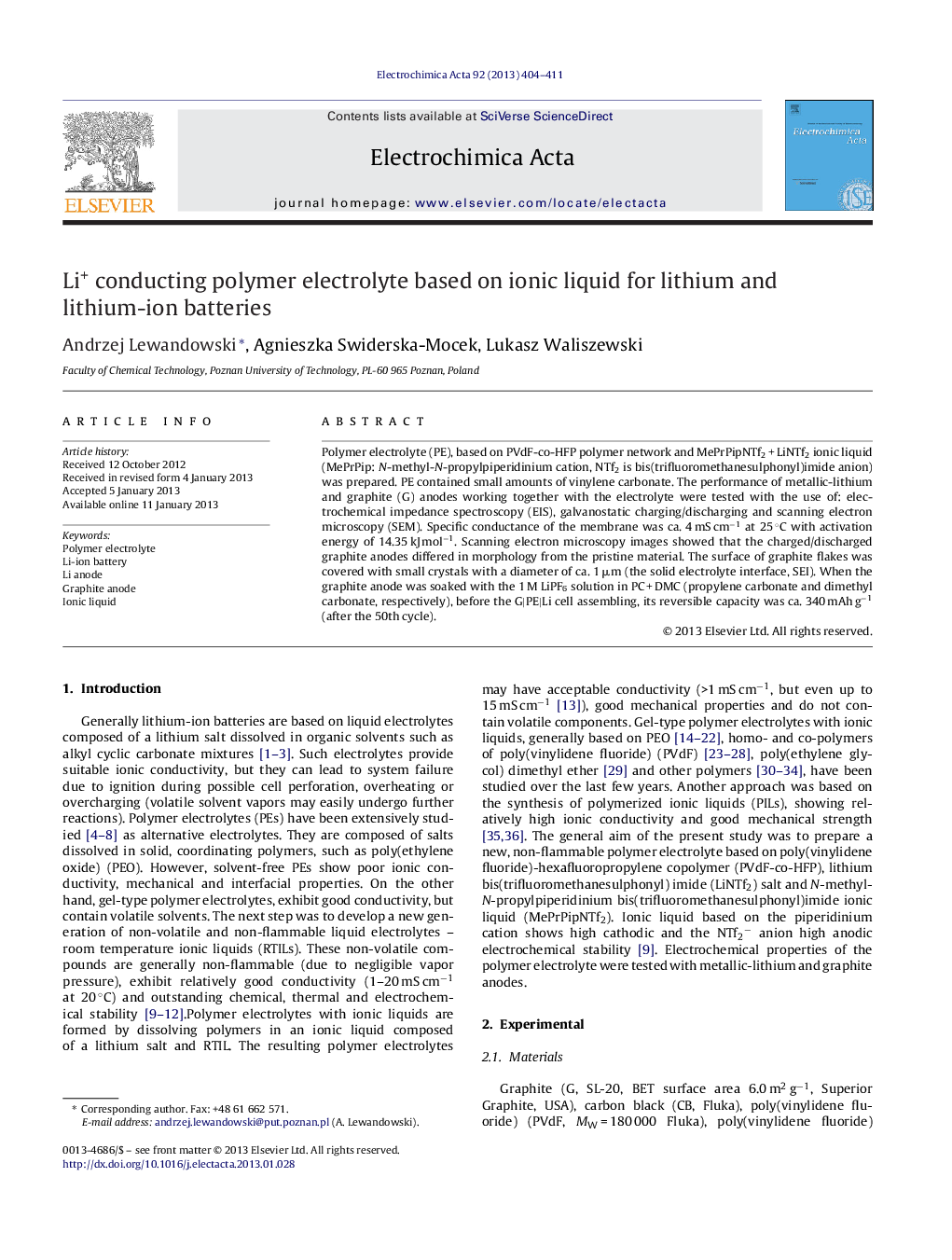| Article ID | Journal | Published Year | Pages | File Type |
|---|---|---|---|---|
| 6618214 | Electrochimica Acta | 2013 | 8 Pages |
Abstract
Polymer electrolyte (PE), based on PVdF-co-HFP polymer network and MePrPipNTf2 + LiNTf2 ionic liquid (MePrPip: N-methyl-N-propylpiperidinium cation, NTf2 is bis(trifluoromethanesulphonyl)imide anion) was prepared. PE contained small amounts of vinylene carbonate. The performance of metallic-lithium and graphite (G) anodes working together with the electrolyte were tested with the use of: electrochemical impedance spectroscopy (EIS), galvanostatic charging/discharging and scanning electron microscopy (SEM). Specific conductance of the membrane was ca. 4 mS cmâ1 at 25 °C with activation energy of 14.35 kJ molâ1. Scanning electron microscopy images showed that the charged/discharged graphite anodes differed in morphology from the pristine material. The surface of graphite flakes was covered with small crystals with a diameter of ca. 1 μm (the solid electrolyte interface, SEI). When the graphite anode was soaked with the 1 M LiPF6 solution in PC + DMC (propylene carbonate and dimethyl carbonate, respectively), before the G|PE|Li cell assembling, its reversible capacity was ca. 340 mAh gâ1 (after the 50th cycle).
Related Topics
Physical Sciences and Engineering
Chemical Engineering
Chemical Engineering (General)
Authors
Andrzej Lewandowski, Agnieszka Swiderska-Mocek, Lukasz Waliszewski,
